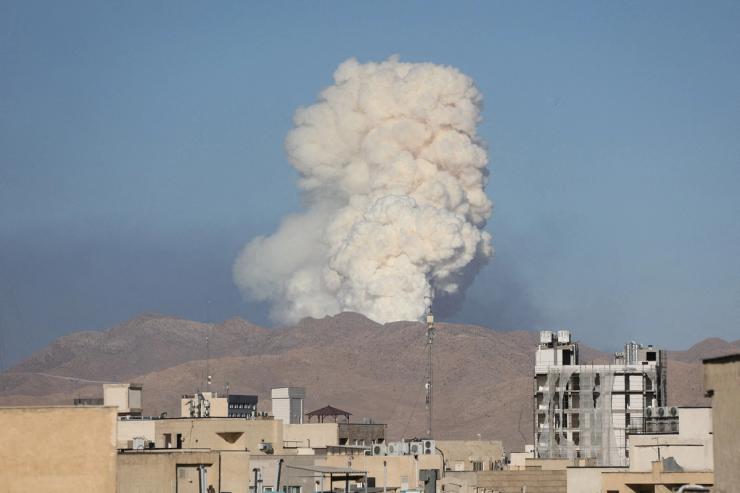The News
Gulf nations expressed concern about US strikes on Iran’s nuclear facilities, and called for the immediate cessation of hostilities, but largely sidestepped blaming Washington for the strikes.
Their remarks pointed to the delicate balancing act they face, seeking to maintain close ties to the US while worrying about the regional implications, as well as fears of spillover of a conflict that has largely been contained to Iran and Israel thus far.
Oil prices have remained stable, but the conflict nevertheless threatens to disrupt the Gulf’s economies: Roughly 30% of the world’s oil supply passes through the Strait of Hormuz, with some experts forecasting oil prices could surge past $100 a barrel, from about $75 now, if the passageway were blocked as a result of the hostilities. The strait is also a corridor for around a fifth of the world’s liquefied natural gas.
Insurers have already raised rates for ships crossing the strait by as much as 60%.
Mohammed’s view
Gulf countries are bystanders, urging de-escalation because the potential expansion of the conflict could include Iranian retaliation against US bases spread across their territories.
The risks include the disruption or closure of the region’s waterways — especially the Strait of Hormuz, through which all the oil and gas exports of Iran, Iraq, Kuwait, and Qatar flow, as well as millions of barrels a day from Saudi Arabia and the UAE — and the nightmare scenario of radiation contaminating the wealthy desert nations’ sole water source.
The three countries that President Donald Trump visited last month — Saudi Arabia, Qatar, and the UAE, which together pledged trillions in investments in the US — have clashed with Iran since the Islamic Republic’s inception. But in recent years, they’ve been trying to mend ties, conscious that the economic development plans on their side of the Gulf can’t progress with a more powerful military adversary across from them. Gulf states don’t enjoy Israel’s missile defenses and sit within much closer range, leaving them vulnerable.
The official reactions echo those made since Israel’s strikes on Iran began last week, with one exception: They didn’t condemn the US as they did Israel’s.
The View From Saudi Arabia
Saudi Arabia — a longtime rival of Iran’s which has in recent months seen slightly improved ties with Tehran — voiced “deep concern” over the targeting of the Iranian nuclear sites, and reiterated prior remarks which “condemned and denounced the violation of the sovereignty” of Iran. It urged restraint and de-escalation.
The View From Qatar
Qatar — the globe’s third largest exporter of LNG — regretted the “deterioration of the situation” in its “sisterly” nation of Iran and called for an immediate cease in hostilities. However, a statement from its foreign ministry notably did not mention who conducted the attacks.
The View From The UAE
Abu Dhabi said the strikes threatened to pull the region “into deeper levels of instability” and stressed the need for immediate de-escalation. The foreign ministry called on members of the United Nations’ Security Council to “uphold their responsibilities” in response to the hostilities.
The View From Oman
Oman, which sits across the Strait of Hormuz from Iran and has hosted talks between Washington and Tehran over Iran’s nuclear program, said it “deplores” the US strikes, which it characterized as an “illegal aggression,” adding that the attack contravened international agreements allowing Iran to develop a “peaceful” nuclear program.

